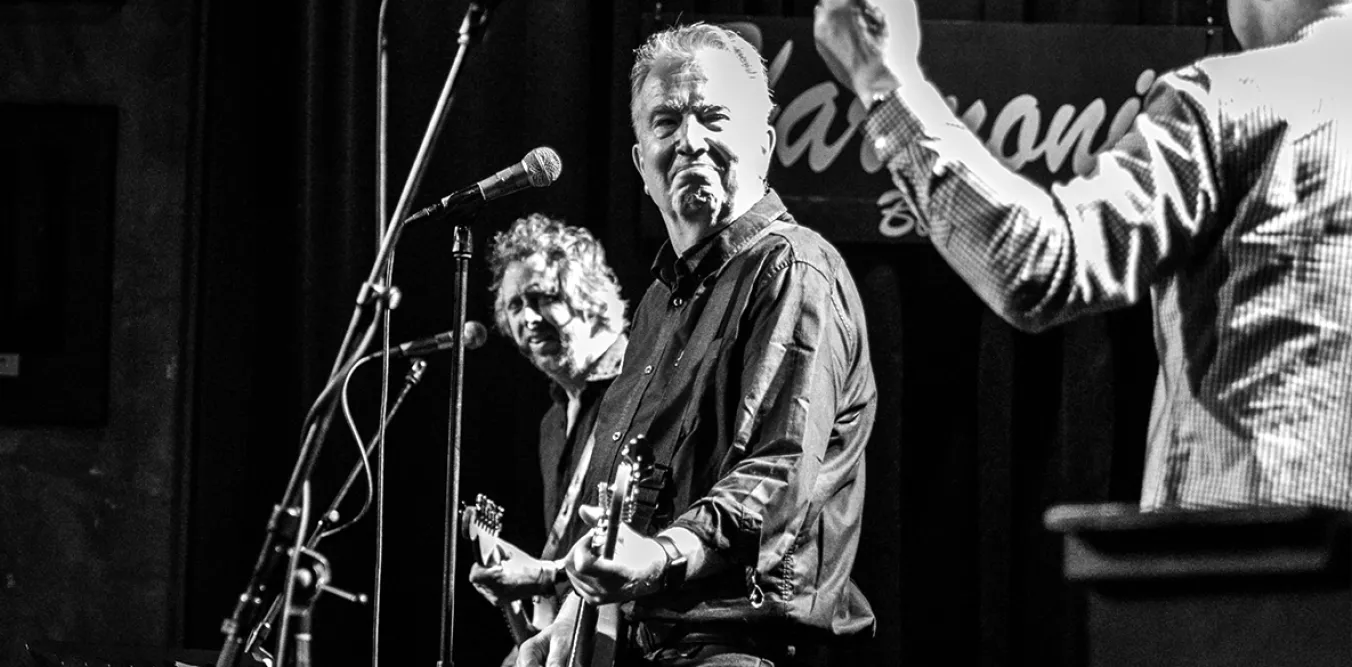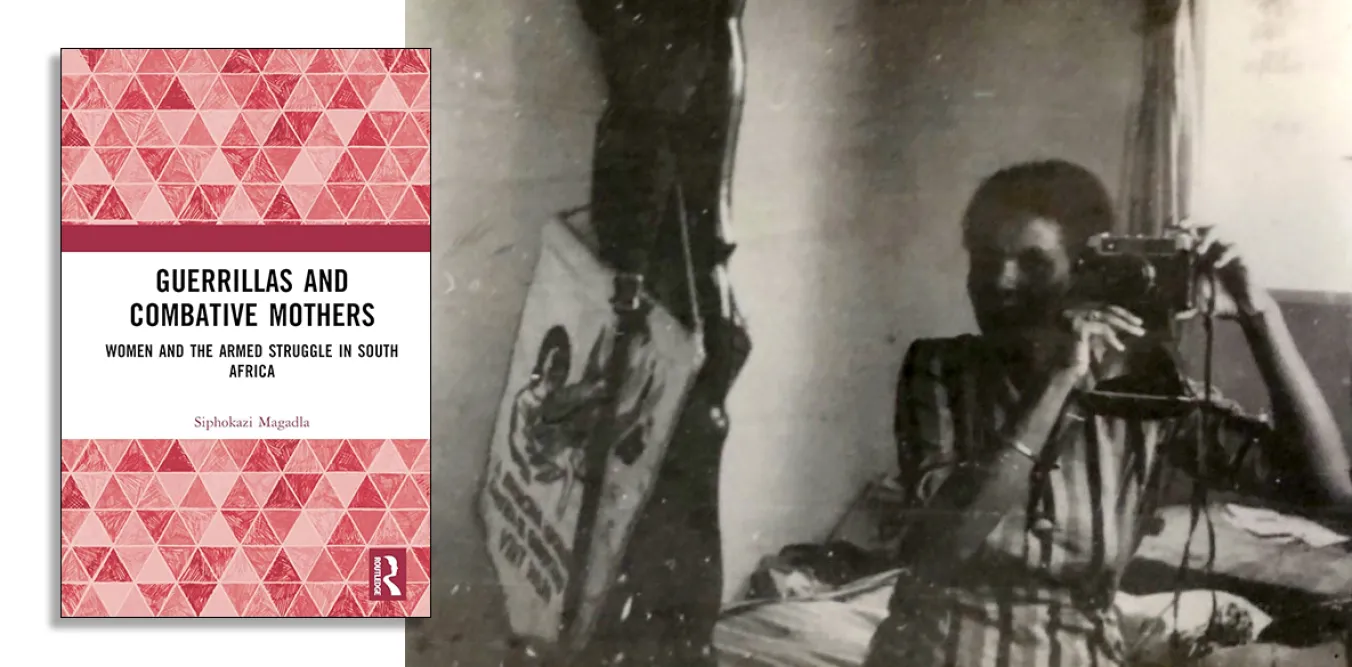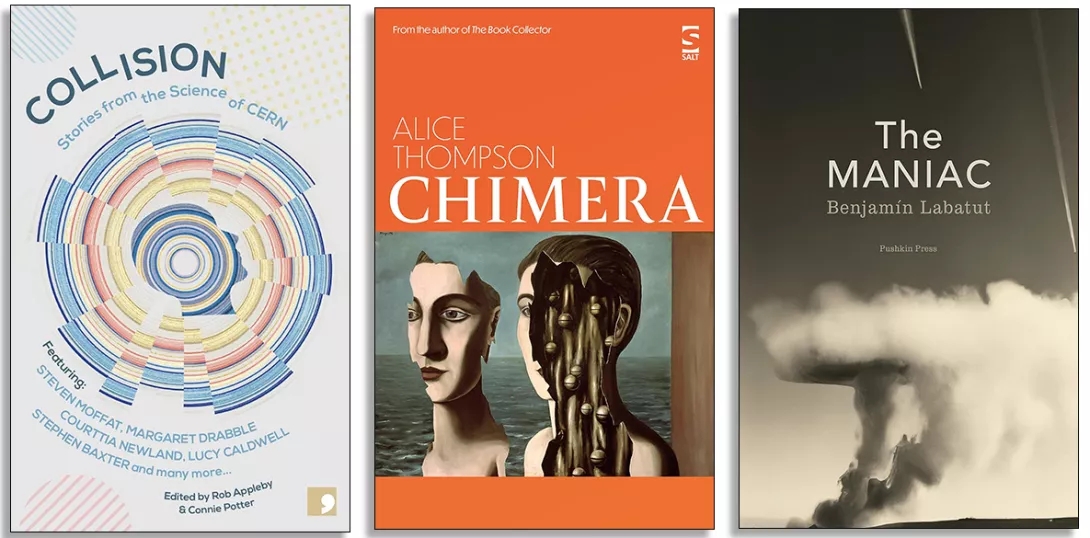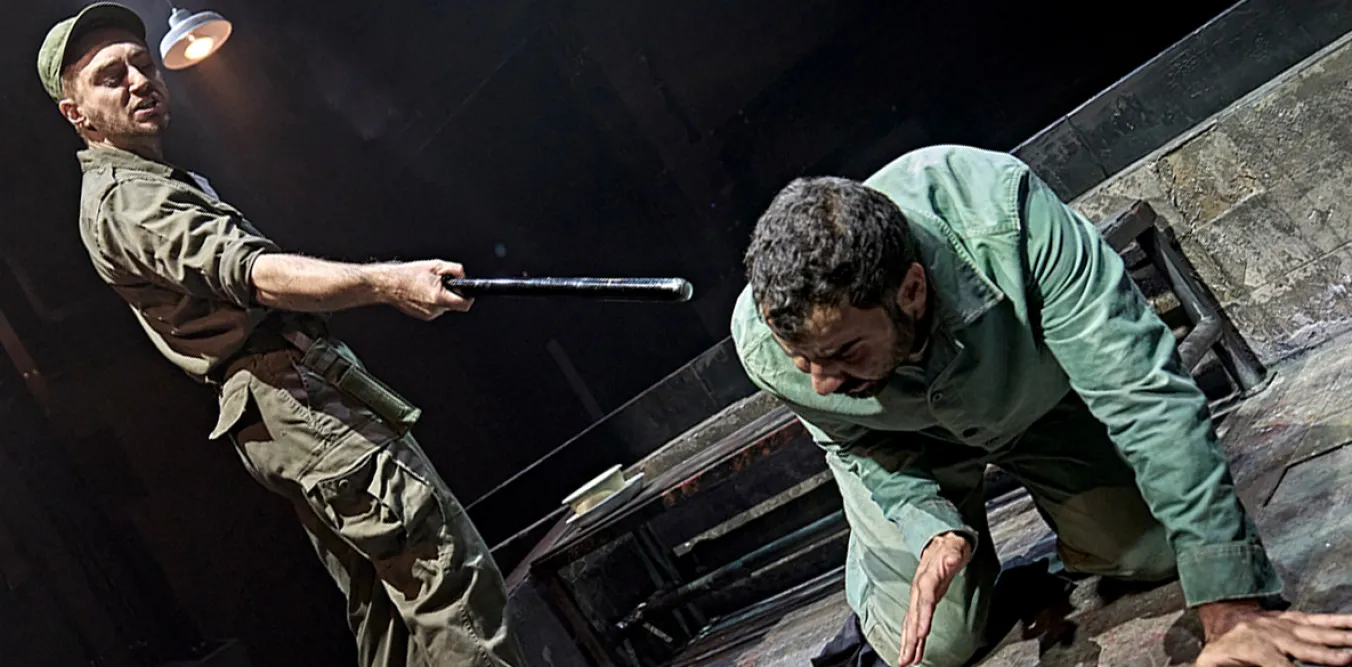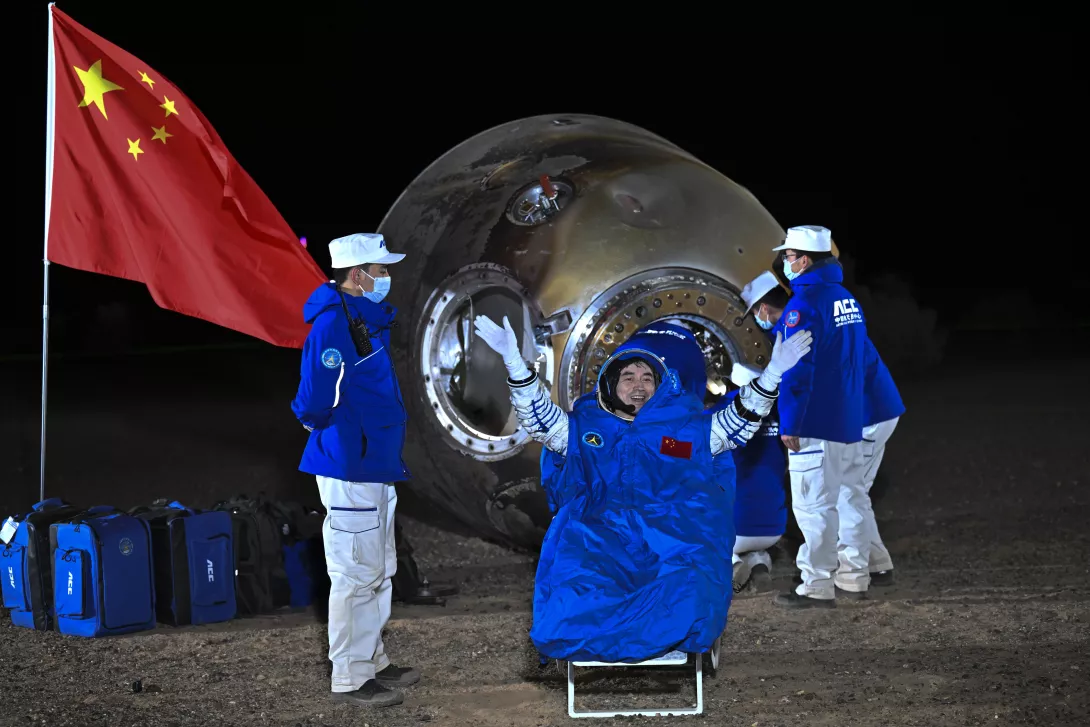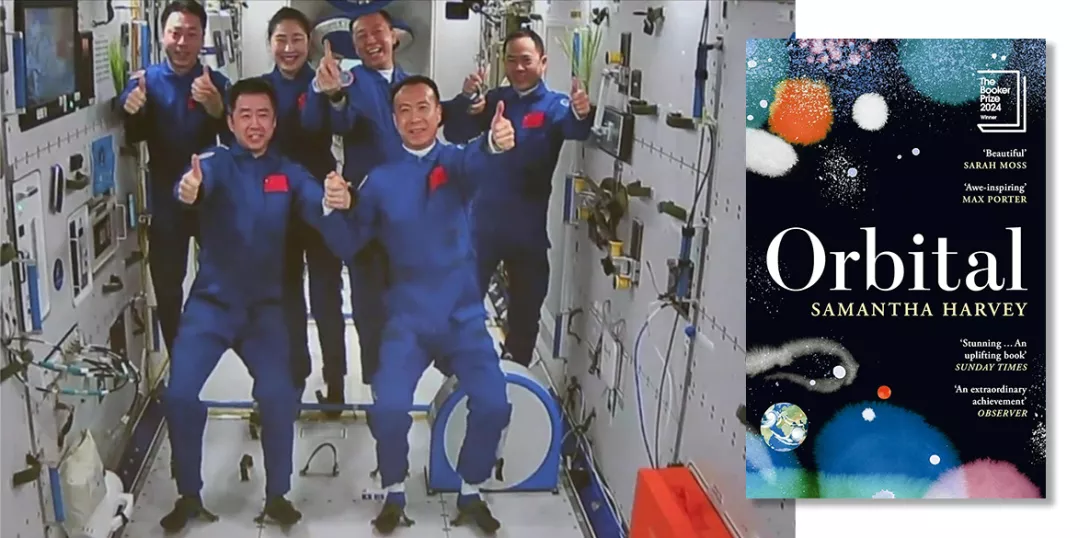
Orbital
Samantha Harvey, Vintage, £9.99
SAMANTHA HARVEY’S Orbital has won the 2024 Booker prize. What it so skilfully and ambitiously exposes is the human cost of space flight set against the urgency of the climate crisis.
While a typhoon of life-threatening proportions gathers across south-east Asia, six astronauts and cosmonauts hurtle around Earth on the International Space Station. Their everyday routine of tasteless food and laboratory work is in stark contrast to the awesome spectacle of the blue planet, oscillating between night and day, dark and light, where international borders are meaningless.
On the International Space Station, borders are only visible on the side of the Earth that is under night and only really as clusters of artificial light which shows cities. Rivers are “nonsensical scorings … like strands of long fallen hair” and “the other side of the world will arrive in 40 minutes” blurring it all.
In 16 orbits, the Earth on its tilted axis delivers a succession of landmasses that the astronauts can name but are defamiliarised by distance and momentum. The Pyramids, the New Zealand fjords, and a desert of dunes are “entirely abstract [and] … could just as easily be a closeup of one of the heart cells they have in their Petri dishes.” Japanese astronaut Chie’s laboratory mice — the canaries in the coal mine of their endeavour — finally learn to negotiate micro gravity “rounding their shoebox module like little flying carpets.” And, on a spacewalk, British astronaut Nell looks back at the “vast spread of the space station and, in this moment it, not earth, feels like home.”
This disassociation from the planet is common among returned astronauts who often report a feeling of closer affinity with their spacecraft. Harvey’s evocative prose describes the tension between a longing for the planet they think of as “mother” and the ambition to leave home forever. At one point astronaut Shaun wonders why they are trying to go where the universe doesn’t want them when “there’s a perfectly good earth just there that does.” But later he expresses frustration with the necessity to orbit 250 miles above the Earth. The moon, he reckons, is just the start.
What Harvey’s novel so skilfully exposes is the human cost of space flight set against the urgency of the climate crisis. The future of humanity is written, Shaun tells Pietro, “with the gilded pens of billionaires.” So while an unprecedented weather event threatens life below, the six astronauts and cosmonauts are rigorously documenting “their own selves,” taking “blood, urine, faecal and saliva samples” and monitoring “heart rates and blood pressure and sleep patterns” to satisfy some “grand abstract dream of interplanetary life” away from Earth.
Orbital was written during the lockdown when the confinement to cramped space like the space station because more understandable to most than ever. It is a slim volume of 135 pages but the economy of Harvey’s writing manages to convey a whole universe of meaning. She taps the contemporary zeitgeist of planetary insecurity alongside the span of history from Las Meninas to the spectacle of astronauts “imagineered, branded and ready,” prepared for consumption by “Hollywood and sci-fi, Space Odyssey and Disney.” “They’re humans,” writes Harvey, “with a godly view that’s the blessing and also the curse.”
Hollywood aside, I was reminded more of John Carpenter’s budget film Dark Star where bored astronauts on an interminable mission to destroy unstable planets are fixated on their dwindling supply of toilet paper. There is a sense, in Orbital, that the mundanity of decay is already overwhelming the spectacle of orbit. The module is “old and creaky” and “a crack has appeared.” The International Space Station is, after all, due to be decommissioned in 2031.
Harvey has written a novel for the end of the world as we know it. The hope it offers is that we might learn to know the Earth differently, while we can.
Debra Benita Shaw is Reader in Cultural Theory in the School of Architecture and Visual Arts, University of East London
This is an abridged version of an article republished from The Conversation under a Creative Commons license.
